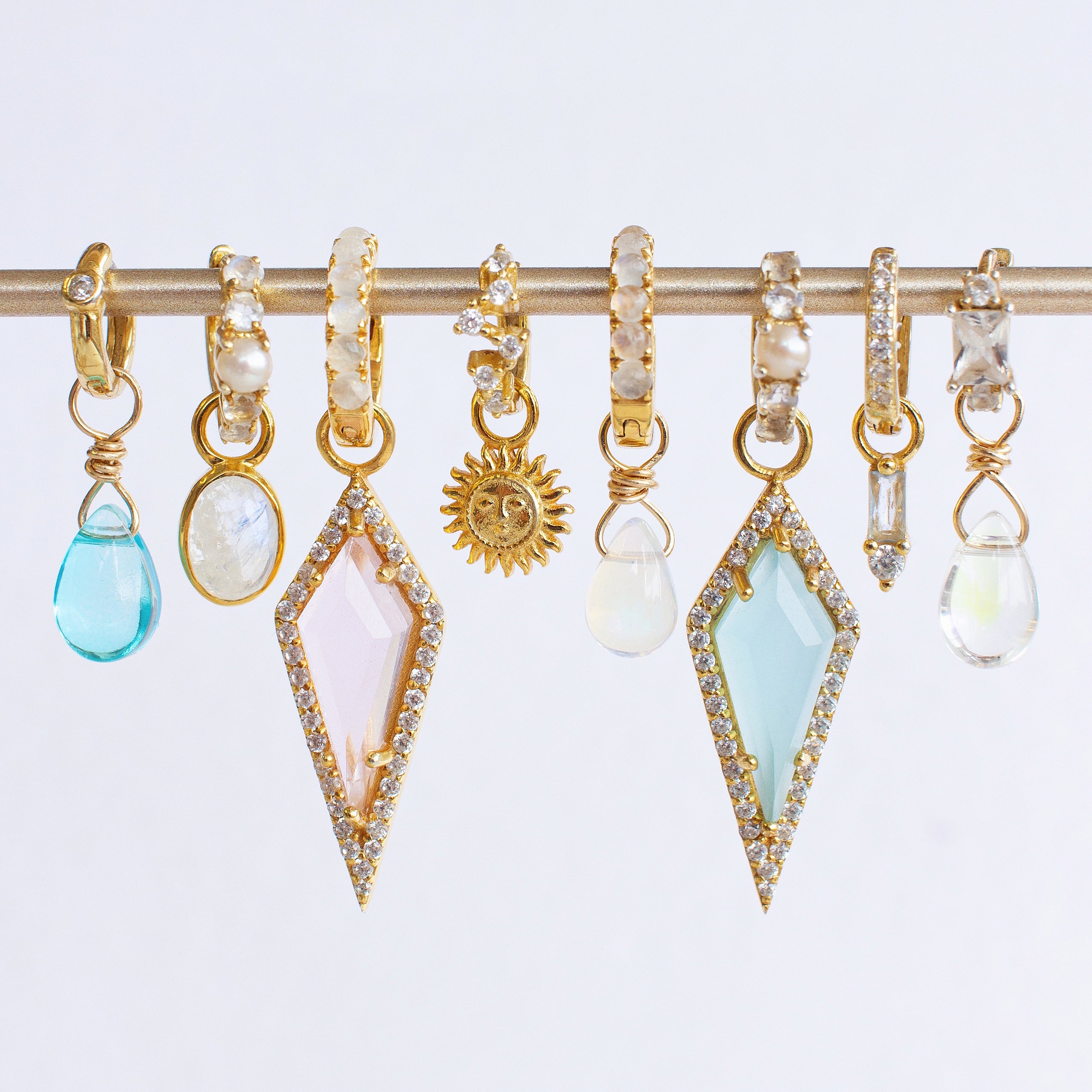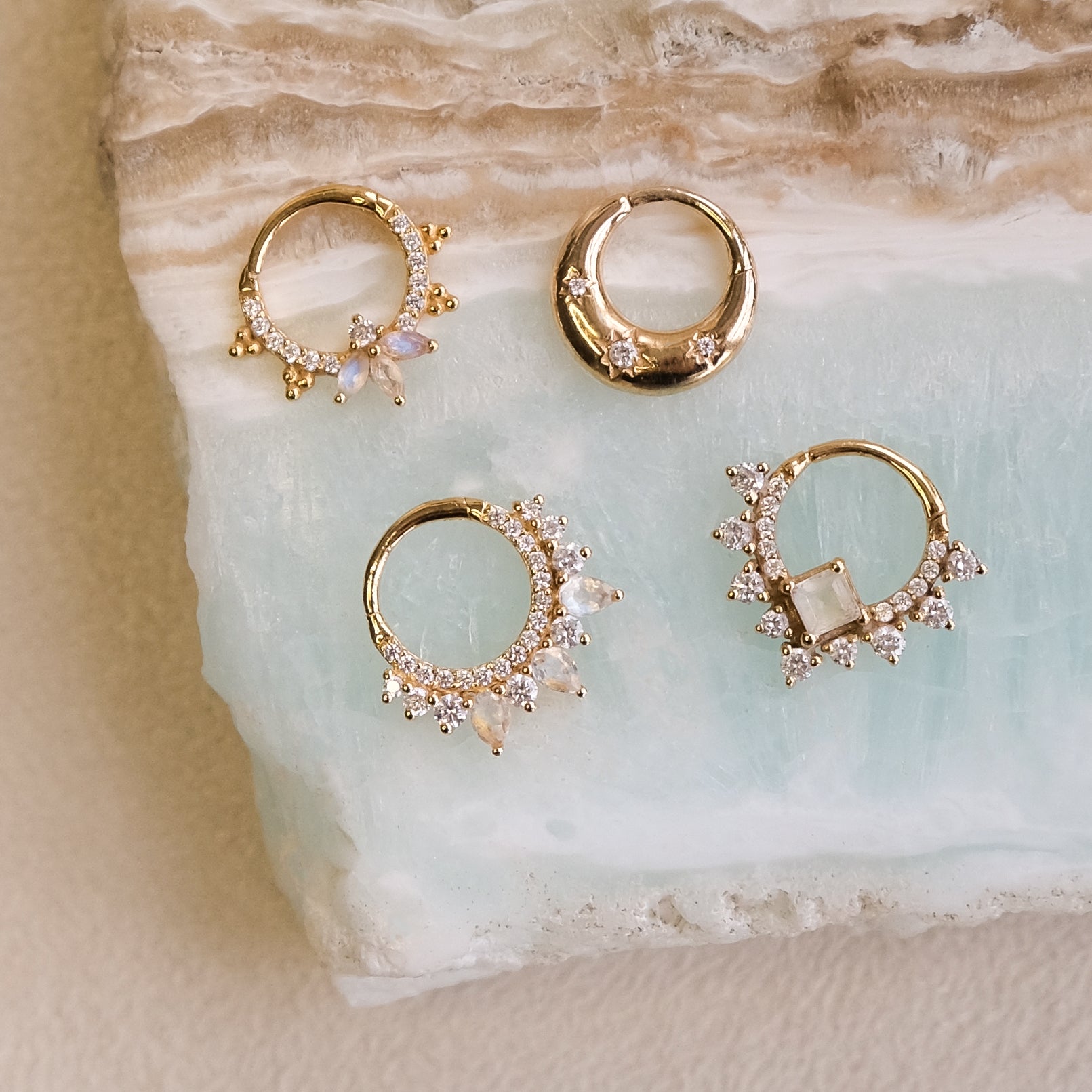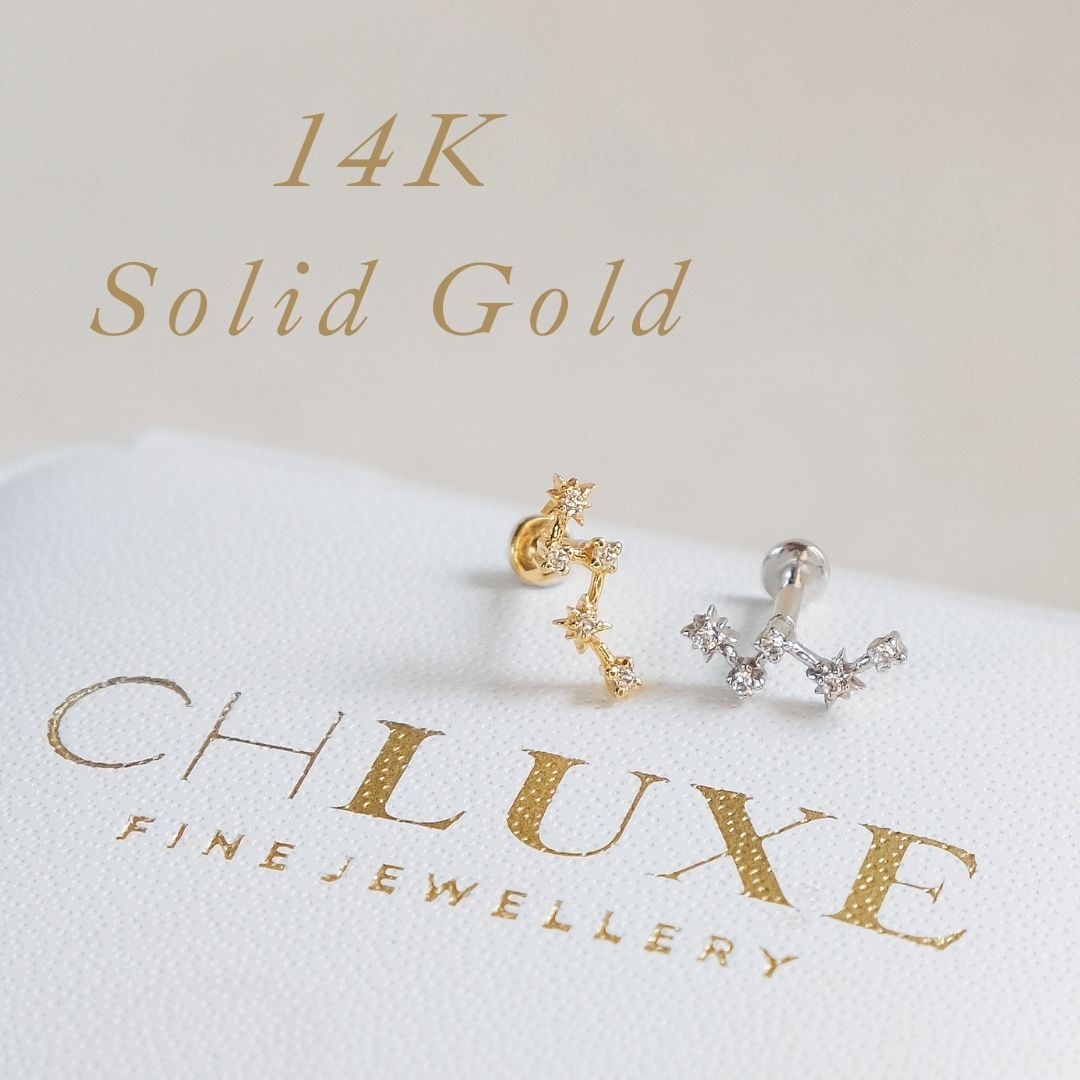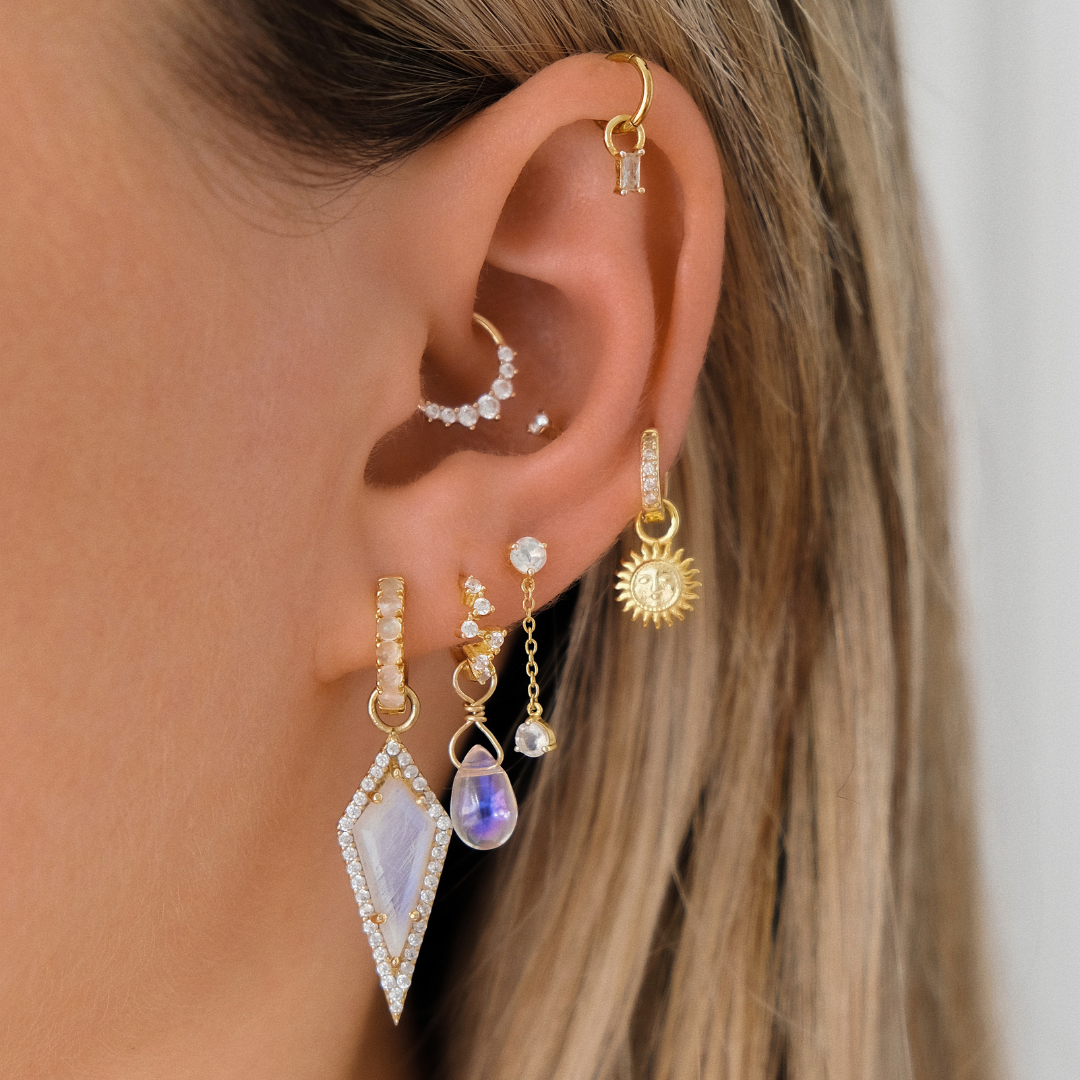
Ultimate Guide: Waterproof Metals
As we sell a variety of different high-quality metals within our collection, each one can differ in their ability to be worn in water so here's everything you need to know!
Is Sterling Silver (non gold plated) waterproof?
Our silver colour Sterling Silver earrings are rhodium plated which are less likely to tarnish compared to untreated sterling silver earrings. Rhodium is a rare and highly durable metal that belongs to the platinum group and perfect for creating a protective layer which enhances the appearance of the jewellery with a shiny finish and also acts as a barrier that helps prevent tarnishing and protects the underlying Sterling Silver. While rhodium plating provides resistance to water, it's still advisable to remove your earrings if you swim in a chlorinated pool every day for example but the occasional swim won't harm your jewellery.
|
Is Sterling Silver (gold plated) waterproof?Our gold colour Sterling Silver earrings are adorned with thick micron gold plating which will last years when looked after. When it comes to swimming, it's best to err on the side of caution as chlorinated water in swimming pools and saltwater in the ocean can accelerate wear on the gold plating over time. While gold plating provides resistance to water, it's still advisable to remove your earrings if you swim in a chlorinated pool every day for example but the occasional swim won't harm your jewellery.
|
Is 14k Solid Gold waterproof?14k Solid Gold jewellery is renowned for its durability and resistance to tarnish, making it a suitable candidate for every day wear. 14k gold, with a high gold content, is more resistant to tarnishing and corrosion than 9k gold for example.
|
Is Implant Grade Titanium waterproof?Titanium is not only lightweight and hypoallergenic but also highly resistant to corrosion. This makes it an excellent choice for water activities. You can confidently wear your Implant Grade Titanium while swimming without worrying about damage.
|
Is 316L Stainless Steel waterproof?316L Stainless Steel is designed to withstand tough conditions, including exposure to water. It is highly resistant to corrosion and tarnish, making it suitable for swimming. Feel free to wear your stainless steel pieces in pools or the ocean.
|
FAQ's
|
What is tarnished Silver and why does it happen? Tarnishing refers to the gradual darkening or discolouration of jewellery over time. It occurs due to a chemical reaction between the metal and substances in the environment, like oxygen and sulfur compounds. Tarnishing is a natural process and can be influenced by factors like air quality, moisture, and exposure to chemicals, leading to the need for regular cleaning and maintenance to restore the original lustre. |
|
Does Sterling Silver and Gold plated Sterling Silver tarnish? All silver jewellery can naturally tarnish, so we've made ours as resistant as possible. If you prefer to wear Silver coloured earrings, Sterling Silver is a naturally silver/white colour, so it doesn't typically need to be plated. However this means you would be wearing a bare metal with no protection or plating, so to ensure our Silver earrings are durable and resistant, we add a rhodium plating as a layer of protection along with an e-coating so that outside factors can't easily tarnish the Silver base metal. |
|
How can I maintain my Gold plated Sterling Silver jewellery?
|
|
What's the difference between tarnishing and green skin? Tarnishing Green Skin TL;DR: Tarnishing is where the surface of the metal turns dark which is removable, whereas 'green skin' is where the skin and jewellery corrodes and turns green. |
|
Can I shower in my earrings? As the water we all shower with can vary across the world so can the chlorine content, however, the amount of chlorine in shower water is typically lower than the levels found in swimming pools. For this reason we'd recommend the following for each different metal:
|




